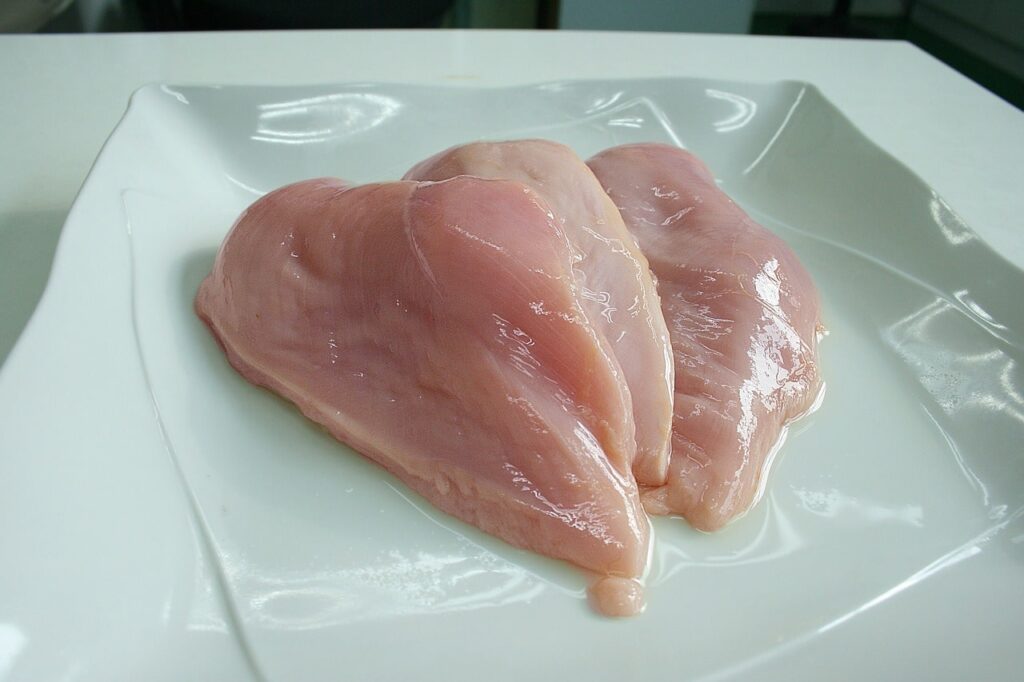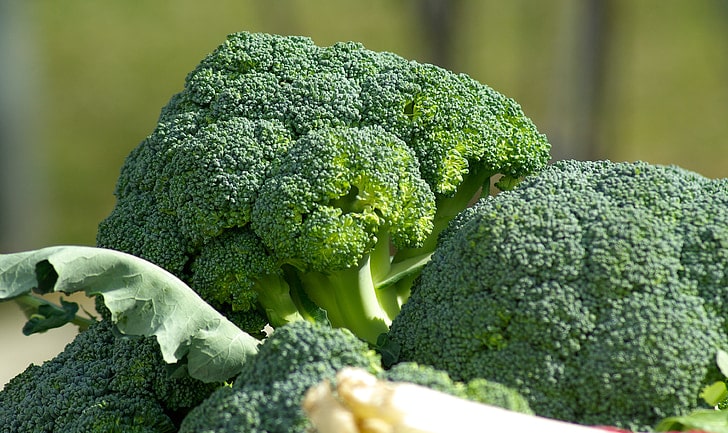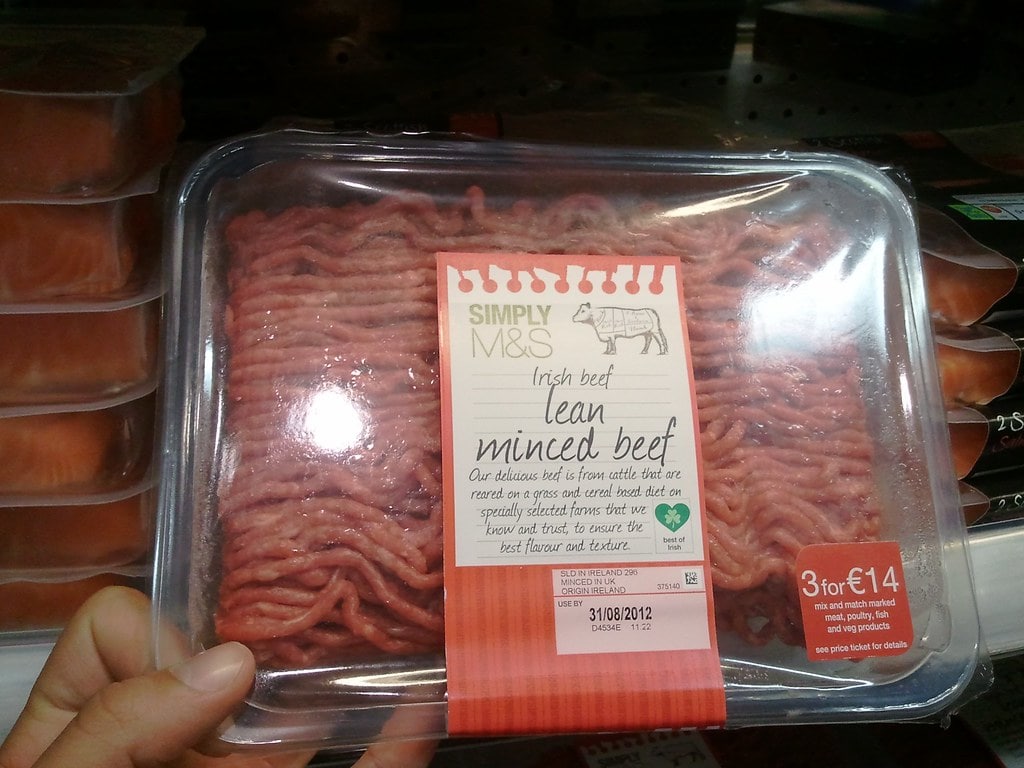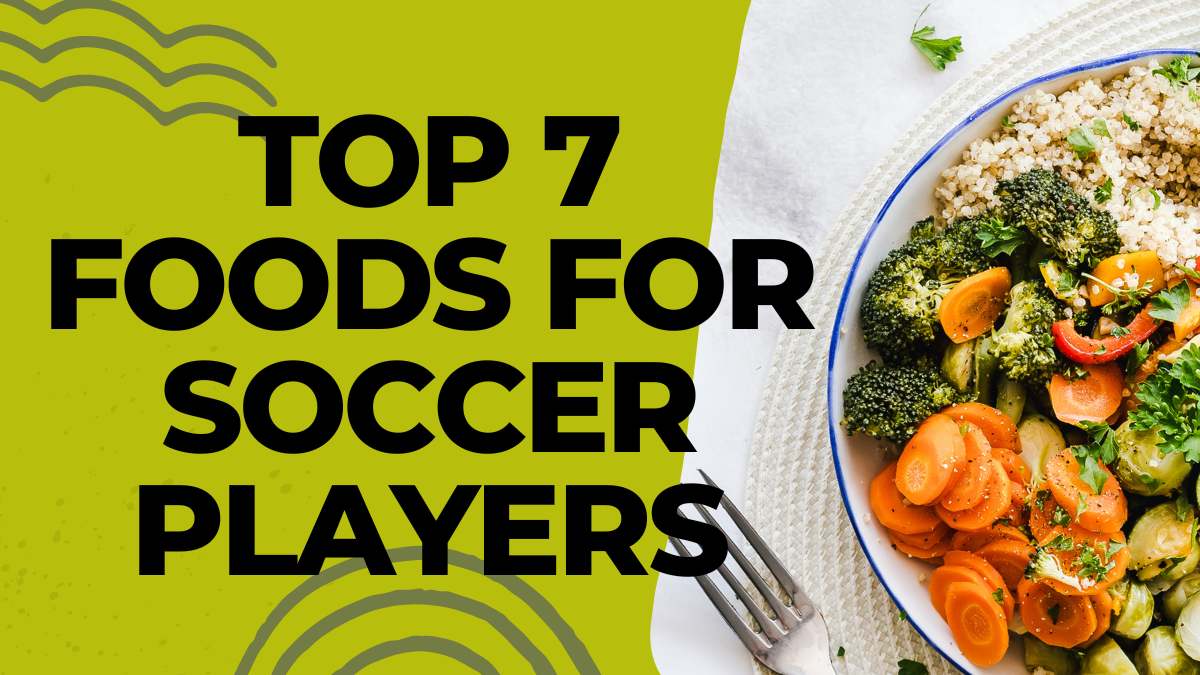Top 7 Foods Every Soccer Player Should Include in Their Diet
Having a well-balanced diet is crucial for soccer players to fuel their bodies and optimize performance on the field. By incorporating the right foods into their diet, players can improve their energy levels, support muscle recovery, and maintain their overall health. If you want to learn more about what a soccer player’s diet should look like, check out our guide on Soccer Nutrition 101.
In this blog post, we’ll explore the top 7 foods that every soccer player should include in their diet. From lean protein sources like chicken or turkey breast to nutrient-rich options such as fruits and broccoli, we’ll cover a range of foods that provide essential vitamins, minerals, and energy to keep you at the top of your game.
So, let’s dive in and discover the key foods that will help take your soccer performance to the next level.
1. Chicken or Turkey Breast

When it comes to lean protein sources, chicken or turkey breast takes the lead. These white meat sources are not only delicious but also provide high-quality protein that is essential for soccer players. As you all know, protein is crucial for muscle repair, growth, and recovery after intense training sessions or matches.
Chicken or turkey breast is low in fat and packed with amino acids, which are the building blocks of muscles. By including chicken or turkey breast in your diet, you can ensure that your body has the necessary fuel to repair and build lean muscle mass.
This helps you to stay strong and agile on the field. There are various ways you can include chicken/turkey breast into your diet. You can grill, fry, and simply add it to your salads or meals to consume these protein sources.
2. Whole-Grain Bread

When it comes to carbohydrates, whole-grain bread is a top choice for soccer players. Unlike refined grains, whole-grain bread retains its natural fiber, vitamins, and minerals. This makes it a healthier and more nutrient-dense option for soccer athletes.
The complex carbohydrates found in whole-grain bread provide a steady release of energy, which is crucial for maintaining endurance throughout training sessions and matches.
Whole-grain bread serves as a great foundation for pre-match meals or as a post-training snack. It can be used to make sandwiches with lean protein sources like chicken or turkey breast. Additionally, the fiber content in whole-grain bread helps in digestion and makes you feel full. This ultimately satiates your hunger sooner and fuels you for longer periods.
Therefore, by incorporating whole-grain bread into your diet, you can ensure a steady supply of energy and the necessary nutrients to support your soccer performance.
3. Olive Oil & Nuts

While carbohydrates and protein are essential for a soccer player’s diet, healthy fats also play a crucial role in providing sustained energy and supporting overall health. Olive oil and nuts are two top sources of healthy fats that can benefit soccer players.
Olive oil, particularly extra virgin olive oil, is rich in monounsaturated fats, which are known for their heart-healthy properties. These fats provide a slow and steady release of energy, helping to sustain performance during long matches or intense training sessions. Additionally, olive oil contains antioxidants that have anti-inflammatory effects, helping muscle recovery and reducing the risk of injury.
Nuts, such as almonds, walnuts, and cashews, are packed with healthy fats, protein, fiber, and other nutrients. They provide a convenient and nutritious snack option for soccer players. Nuts offer a good balance of carbohydrates, protein, and fats, making them an excellent choice for soccer players.
You can enhance the flavor and nutritional value of your meals by using olive oil in salad dressings, sauteing vegetables, or drizzling it over Chicken or beef. Similarly, you can consume a handful of nuts as a quick snack either before or after your training sessions.
4. Brown Rice

When it comes to complex carbohydrates, brown rice is another staple food that every soccer player should consider including in their diet. Unlike white rice, brown rice undergoes minimal processing, which means it retains its bran and germ layers and is also packed with fiber, vitamins, and minerals.
The complex carbohydrates found in brown rice provide a steady release of energy, making it an ideal fuel source for training and matches. This slow digestion helps to sustain energy levels and prevent rapid spikes and crashes in blood sugar. Additionally, the fiber content in brown rice improves your digestion and it also supports a healthy gut.
Brown rice is also rich in important nutrients like magnesium and B vitamins, which are essential to your body. It serves as a versatile base for meals, and you can combine it with lean protein sources, vegetables, and healthy sauces.
Brown rice can be consumed in a variety of ways such as a stir-fry, a rice bowl, or a side dish. No matter how you eat it, brown rice can give you the necessary fuel to play soccer for a longer period.
5. Fruit Salad

As an athlete, you need to focus on getting the necessary amounts of vitamins, minerals, and antioxidants. Consuming a fruit salad is the perfect way to do so because you will be incorporating a variety of fruits into your diet.
Fruits are naturally rich in vitamins such as vitamin C, which help in collagen formation (a protein important for skin, bones, and connective tissues) and improves your immunity. They also provide a wide range of minerals like potassium, which is crucial for maintaining proper muscle function and preventing cramps.
Additionally, fruits are packed with antioxidants that improve your immunity and make you less prone to getting sick.
By consuming a fruit salad, you can enjoy a mix of different fruits, each offering unique nutritional benefits. While preparing a fruit salad, you can opt for a combination of antioxidant-rich berries, such as strawberries, blueberries, and raspberries.
You can also include citrus fruits like oranges and grapefruits, which are high in vitamin C. Likewise, you can add banana slices as they’re a good source of potassium. To top it off, you can add fruits like watermelon and cantaloupe as they’re good for hydration and they offer a refreshing taste.
You can consume a fruit salad as a snack option or as a healthy dessert. The natural sugars in fruits provide a quick source of energy, and the fiber content helps to regulate blood sugar levels. It’s a delicious and nutritious way to satisfy your sweet tooth while staying healthy as an athlete.
6. Broccoli

When it comes to incorporating nutrient-dense vegetables into your diet as a soccer player, broccoli is an excellent choice. This green cruciferous vegetable offers a lot of benefits for soccer players and other athletes.
First of all, broccoli is an excellent source of calcium, which is vital for maintaining strong bones and preventing injuries. It also contains vitamin C, which supports collagen production and aids in the repair and growth of tissues.
Moreover, broccoli is rich in fiber which is why it helps regulate digestion. Fiber slows down the absorption of carbohydrates, so it can help regulate your blood sugar levels and provide you with sustained levels of energy throughout your exercise and training sessions.
Additionally, broccoli is packed with antioxidants, including vitamin A and vitamin E, which help fight oxidative stress and reduce inflammation in the body. These properties can aid in post-exercise muscle recovery and support a healthy immune system.
To incorporate broccoli into your diet, consider adding it to stir-fries, salads, or steaming it as a side dish. You can also pair it with lean protein sources, such as grilled chicken or tofu.
7. Lean Ground Beef

Lean ground beef is a protein-rich food that can be a valuable addition to a soccer player’s diet. It provides essential nutrients, including high-quality protein, iron, zinc, and B vitamins, which are crucial for muscle function, oxygen transport, and energy production.
Protein is essential for repairing and building muscle tissue, and lean ground beef is a great source of complete protein. It contains all the essential amino acids needed for muscle repair and growth. This can be particularly beneficial after intense training sessions or matches to support muscle recovery.
Lean ground beef is also a notable source of iron, which is important for maintaining healthy red blood cells and preventing iron deficiency anemia. Iron is vital for transporting oxygen to muscles and organs and it helps to promote optimal energy levels and endurance.
Additionally, lean ground beef provides zinc and B vitamins, such as vitamin B12 and niacin, which play key roles in energy metabolism and overall athletic performance.
When incorporating lean ground beef into your diet, you should try to minimize saturated fat intake. You can do so by opting for the leanest cuts, such as sirloin or extra-lean ground beef. You can then consume lean ground beef in various ways, such as rice meals and wraps.
Conclusion
To wrap up, Including the right foods in your diet as a soccer player is vital for optimal performance and overall health. Including lean protein sources, complex carbohydrates, fruits, vegetables, healthy fats, and nutrient-rich options like lean ground beef provides the necessary nutrients to fuel your body and support muscle recovery.
Remember you can always seek guidance from a registered dietitian or sports nutritionist for personalized advice. However, by understanding the basics of soccer nutrition, you can always make healthy food choices on your own.
If you want to read more, please check out our article on common soccer nutrition myths and hydration strategies for soccer.







